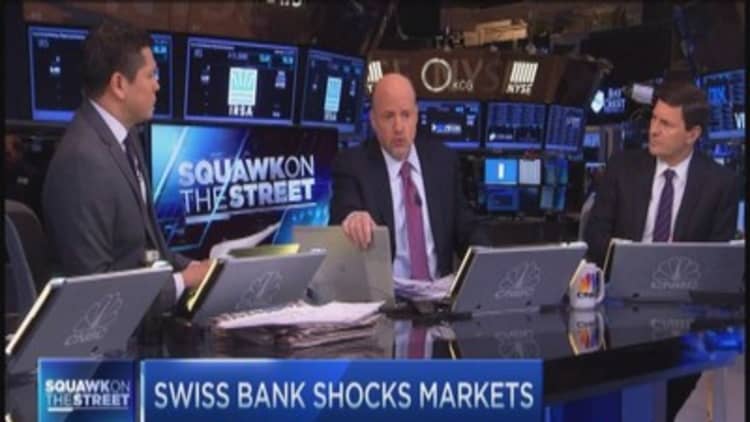
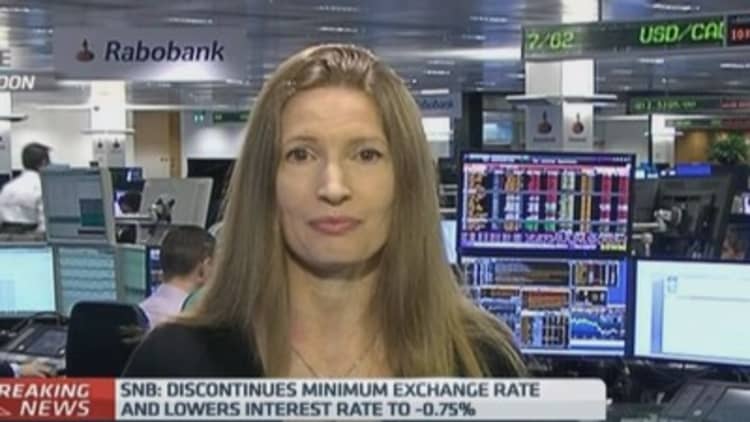
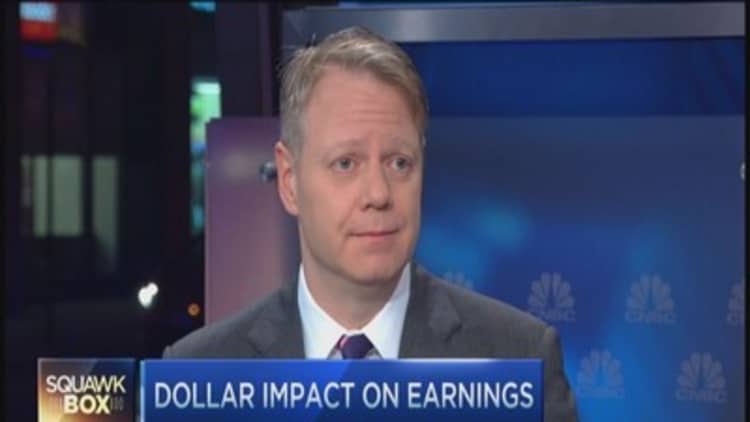
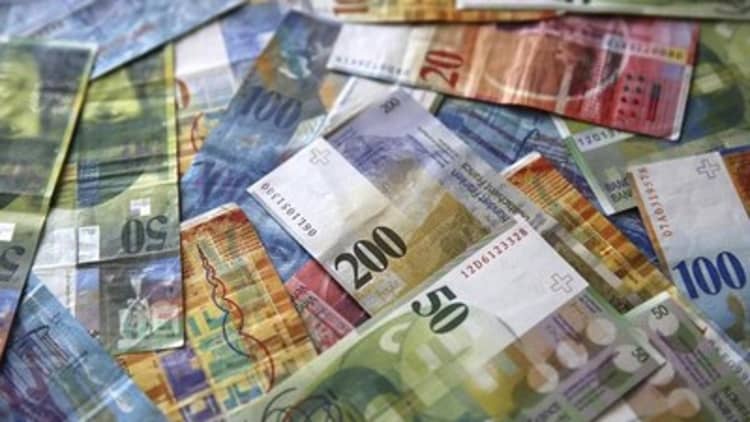
The Swiss National Bank (SNB) stunned markets on Thursday, when it scrapped its three-year-old peg of 1.20 Swiss francs per euro.
In a chaotic few minutes after the central bank's announcement, the Swiss franc soared by around 30 percent in value against the euro.
The franc broke past parity against the euro to trade at 0.805 per euro, before trimming those gains to trade 13 percent higher at 1.040.
The currency also gained 25 percent against the U.S. dollar, before falling back to trade around 12 percent higher at 0.901 francs per dollar.
Read MoreForex.com suspends trading Swiss francs
SNB Chairman Thomas Jordan said the decision to drop the cap was not a "panic reaction," and was a "well thought-out decision." He added that he expected the value of the Swiss franc to ease back to "more sustainable levels".
The move also hit European equity markets hard, with the Swiss benchmark stock index falling by more than 10 percent at one point.
"Pressure had been building on the cap for weeks, but the decision to scrap it so abruptly had markets reeling, with the DAX dropping by 250 points in a matter of minutes," Daniel Sugarman, market strategist at ETX Capital, said in a note.
Trade in Swiss stocks around 8:10 am ET:
'Exceptional overvaluation'
The Swiss central bank introduced the peg in September 2011 in response to investors buying up massive amounts of the Swiss franc as a safer foreign exchange alternative to the euro or the dollar.
In a statement Thursday, the SNB said the franc was now out of the period of "exceptional overvaluation" during which the minimum exchange rate had been introduced.
"The euro has depreciated considerably against the US dollar and this, in turn, has caused the Swiss franc to weaken against the U.S. dollar. In these circumstances, the SNB concluded that enforcing and maintaining the minimum exchange rate for the Swiss franc against the euro is no longer justified," the statement said.
"While the Swiss franc is still high, the overvaluation has decreased as a whole since the introduction of the minimum exchange rate."
The central bank also cut its main interest rate to -0.75 percent—a move further into negative territory.
"The SNB is lowering interest rates significantly to ensure that the discontinuation of the minimum exchange rate does not lead to an inappropriate tightening of monetary conditions," it added.
Fight a losing battle?
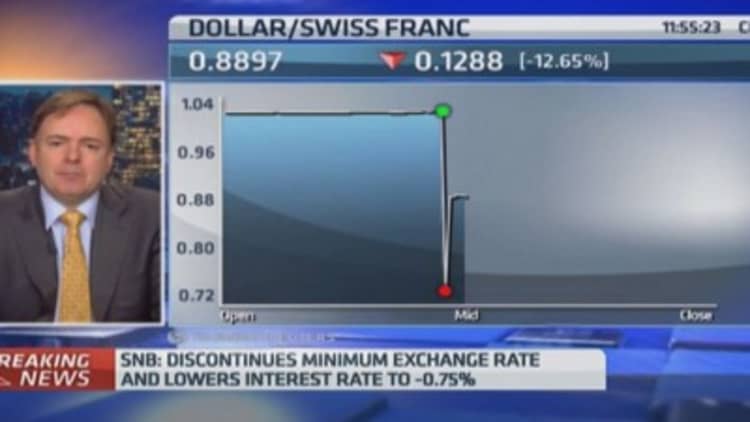
Simon Smith, chief economist at FxPro brokerage, said the timing of the move was a surprise as it was just one month after the last change in interest rates.
"But it could well be that the SNB has chosen to front-run the likely move to QE (quantitative easing) from the European Central Bank, whether than happens next week or the subsequent meeting in March," he said in a note.
"Perhaps knowing that the likely impact on the euro would mean even greater upward pressure on the Swissie, they chose to take the initiative, rather than fight what would have been (in their eyes) a losing battle to defend the franc."
A growing number of analysts are expecting the ECB to announce a full-blown government bond-buying program—also known as quantitative easing—at its next meeting. It comes after data last week revealed that the euro zone slid into deflation in December.
Economic repercussions
Beat Siegenthaler, foreign exchange strategist at UBS investment bank, said the move would likely have "significant ramifications" in Switzerland, as some market-watchers had expected the ceiling to remain in place for years.
"Unless EURCHF was to recover back to levels much closer to the old 1.20 floor, the economy could be significantly impacted, as seems well reflected in the reaction of equity prices," he said in a note.
"At levels close to parity, many businesses and investment decisions might not be seen as viable anymore and over time a significant volume of economic production could move outside the country."
The CEO of watch maker Swatch Group warned that the decision to drop the cap could be a "tsunami" for Switzerland.
"Words fail me! Jordan is not only the name of the SNB president, but also of a river... and today's SNB action is a tsunami; for the export industry and for tourism, and finally for the entire country," Nick Hayek said in a statement emailed to CNBC. Shares in Swatch Group fell around 15 percent on the news.
UBS' Siegenthaler warned of a "significant deflationary shock" for the country—similar to that which the country had attempted to avoid by introducing the floor in 2011.
—By CNBC's Katrina Bishop. Reuters contributed to this report.


